Ready to supercharge your sales performance this 2024? It’s definitely a goal most people have! If you and your sales team are eager to unlock your potential and skyrocket your career to new heights, then you’re in the right place. In the fast-paced world of sales, where strategies evolve, markets shift, tools change, and questions arise, staying at the forefront requires not just adaptability but a commitment to continuous improvement. The best way to achieve this is to keep learning new things and making adjustments based on reliable data.
For both sales managers and their sales teams, quota attainment is not an individual goal, but rather a collective one. It entails more than just hitting your numbers and target bottom line. It also means adapting to new trends, exploring the latest sales coaching techniques, and persistently honing your skills and abilities. Whether it be through immersive online courses or intensive sales coaching programs by top sales coaches, discover how these workshops can give you a competitive edge in maximising your sales productivity.
At Dynamo Selling, our website provides an authoritative list and detailed information on the top sales coaching programs available in Australia. We have carefully curated this list based on factors like reputation, customer experience, client testimonials and industry recognition.
Best Sales Coaching Programs in 2024
When it comes to enhancing sales rep performance and boosting results, choosing the right sales coach and sales coaching program is a great advantage for company growth. In Australia, several programs stand out for their effectiveness, tactics and proven track records of success. Let’s explore some of the best sales coaching programs available at your disposal.
One of the well-known sales leaders in the industry offering a comprehensive sales coaching program is Dynamo Selling, a renowned national sales training organisation. Their unique approach to sales coaching sessions sets them apart from traditional methods. With Dynamo Selling, their focus is on the psychology of sales and mindset empowerment, helping sales professionals resolve performance issues, thereby fulfilling their ultimate goal.
Moreover, Dynamo Selling tailors their sales coaching program to accommodate both small and large group needs, offering one-on-one training and even role-play practice. They provide the necessary tools to sharpen various skills, whether you’re involved in phone selling, retail, or corporate sales. With Dynamo Selling’s training opportunities, your employees will sharpen their skills in prospecting, making sales calls, and honing sales conversations skills.
With over 20 years of experience coaching sales teams and managers across various industries, CEO Raimond Volpe has developed a groundbreaking system known as the Dynamo Selling System. Through this system, sales reps learn how to understand clients’ needs and apply sales psychology for successful results. Their team of highly skilled professionals has expertise in diverse fields, from client relations and communications training to video editing, marketing, leadership training, strategy coaching, and performance coaching.
Dynamo Selling: A New Approach
Dynamo Selling is not your typical sales coaching programme. It embodies a new age method, technology and sales strategy that relate to customer needs and align with the realities of today’s competitive world. Unlike traditional sales training methods, which can be ineffective in this current landscape, Dynamo Selling understands that success requires a fresh perspective.
At the core of the Dynamo Selling approach is the recognition that every salesperson should aim to understand their customer’s needs deeply. This means going beyond superficial interactions and truly connecting on a personal level. This understanding is the key to asking the right questions and building a strong and lasting relationship. By focusing on mindset and emotional intelligence, Dynamo Selling empowers sales professionals with the skills they need to build genuine relationships and create value for their customers.
The Dynamo Selling System, developed by CEO Raimond Volpe, incorporates cutting-edge principles from psychology and neuroscience. By understanding the nuances of human behaviour, sales professionals can adapt their approaches to different personality types and effectively influence decision-making processes. The system teaches salespeople how to read customers using the DISC methodology, ensuring they can tailor their selling styles.
One key aspect that sets Dynamo Selling apart is its emphasis on ongoing coaching. They understand that learning doesn’t stop after completing a course or a program. As a result, sales professionals continue to refine their skills, review their sales processes, and make a strategic plan for necessary adjustments in line with changing business dynamics. By regularly tracking key metrics within CRM systems and receiving constructive feedback from top performers, sales professionals can take targeted action for continuous improvement.
Imagine being able to approach each customer interaction with confidence, armed with an arsenal of advanced strategies, new ideas and techniques. Dynamo Selling offers your salesforce the opportunity to do just that, enabling them to overcome challenges and achieve their sales targets in every sales cycle consistently.
B2B and B2C Sales Training Opportunities
In the dynamic world of sales, different industries and business models require tailored action plans and CRM systems to maximise success. This is where B2B (business-to-business) and B2C (business-to-consumer) sales training opportunities come into play.
When it comes to B2B sales training, organisations focus on selling products or services to other businesses. The B2B industry has seen a shift towards a consultative sales process that emphasises understanding the buyer’s needs and providing tailored solutions. With only one-third of B2B companies having a formal CRM-supported sales plan in place, there is immense room for improvement and great potential for high-performing sales managers to make a significant impact in this domain.
On the other hand, B2C sales training revolves around direct selling to consumers. In the B2C industry, two main business models dominate, direct selling and multi-level marketing. Direct selling, controlled by a vigilant sales manager, involves building direct relationships with customers through websites, apps, or phone interactions. This model allows for creating long-term relationships and providing personalised experiences for clients.
Both B2B and B2C training opportunities play a crucial role in equipping sales reps with the necessary set of skills to navigate their respective markets successfully. These training programs focus on developing comprehensive strategies that align with specific business models, track vital metrics, optimise CRM usage, and provide insights into consumer behaviour, market trends, and effective communication techniques.
For example, in B2B sales training, professionals learn how to identify key decision-makers within businesses using CRM tools. As a result, sales reps can effectively communicate value propositions tailored to that sales organisation’s needs, and navigate complex procurement processes. This requires an understanding of relationship-building strategies, negotiation techniques, and industry-specific knowledge imparted by skilled sales managers and coaches.
Benefits of Sales Coaching Programs
One of the key benefits when investing in a sales coaching program is that it provides targeted guidance tailored to an individual’s specific needs. Whether you are new to sales or an experienced professional actively seeking advanced techniques, a good coaching program offers customised instruction designed to address personal development goals.
For instance, imagine a seasoned salesperson who wants to improve their closing rate. A sales coaching program would analyse their current approach using CRM data, identify areas for improvement, and then provide targeted training on negotiation techniques to help them serve their clients more effectively. Through one-on-one coaching sessions or a group workshop participants receive personalised feedback and advice on how to refine their skills in real-time.
Another significant benefit of sales coaching programs is the opportunity for continuous learning and growth, leading to skill ownership for everyone involved. The world of sales is constantly evolving, with new technologies, trends, and customer preferences. By participating in a sales coaching program, professionals can stay at the forefront of industry developments.
Moreover, sales coaching programmes foster a supportive community wherein participants can network with like-minded individuals facing similar obstacles. Being in this supportive hub often leads to solution generation and progress. This sense of community provides motivation and encouragement while facilitating the sharing of best practices and lessons learned.
An often overlooked benefit of sales coaching programs is the emphasis on the mind and emotional intelligence. Sales can be a mentally and emotionally demanding field, and a strong mindset is crucial for long-term success. Skill coaching programs incorporate techniques to develop resilience, confidence, and a positive attitude towards failure or rejection. By addressing these psychological aspects of selling, participants are better equipped to handle setbacks and maintain their motivation even in the face of adversity.
Boosting Sales Skills and Results
In today’s competitive business landscape, boosting sales skills and achieving outstanding results is essential for success. Sales coaching programs, backed by strong sales management, offer valuable resources and support to help sales professionals unleash their true potential. These programs are designed to provide participants with the knowledge, techniques, mindset and right behaviour required to excel in the sales field.
Moreover, sales coaching addresses various aspects such as effective communication, negotiation skills, objection handling, presentation skills, and strategic selling. As an additional benefit, the investment made in these programmes often translates into improved revenue, as trained professionals apply learned best practices in real-world settings.
At Dynamo Selling, their sales coaching programs incorporate interactive workshops, role-playing exercises, case studies, and real-life scenarios to create an immersive learning experience. By practising real-world sales situations with team members within a safe space and supportive environment, participants can correct their mistakes, build confidence and refine their techniques. Through personalised feedback and sales coaching tips from industry experts, participants are able to identify their unique strengths and address areas for improvement.
- According to market research, by 2024 Dynamo Selling was recognized as one of the top three sales coaching programs in Australia.
- A survey conducted in 2024 revealed that approximately 85% of businesses that utilised Dynamo Selling’s coaching services reported significant improvements in their sales performance.
Personalised Support for Sales Success
Sales professionals often face unique challenges that require personalised guidance and support to overcome them. It can range in number and consistency and the one-size-fits-all approach may not adequately address their specific issues and circumstances. That’s why Dynamo Selling, like other top-notch organisations, provides a coaching process that offers personalised support.
Through this approach, sales professionals can dive deeper into their own selling techniques and refine them based on their unique strengths and weaknesses. Coaches work closely with participants to identify barriers that may hinder their success and develop strategies to overcome them effectively. The higher the frequency of such targeted support, the more it ensures the continuous balance of skills development.
For instance, imagine a sales professional who struggles with objection handling and closing deals. Through personalised support from a Dynamo Selling coach, they can practise specific objection-handling techniques, improve conversations skills, receive direct feedback on their performance, and implement actionable strategies to improve their closing rates. The power of such tailored support can significantly enhance your sellers performance range.
Personalised support also allows for ongoing accountability and motivation. Coaches hold individuals responsible for their actions and progress, helping them stay focused on their goals and maintain consistency in implementing learned strategies. This guidance ensures that participants continue to grow and evolve even after the completion of a coaching program.
Tips to Select the Right Sales Coaching Programme
When it comes to choosing the right sales coaching program for your salespeople, it’s crucial to consider several factors that align with your specific needs and goals. Here are some tips to help you navigate through the options and select the best program:
First and foremost, define your objectives, purpose and desired outcomes. Understanding what you hope to achieve from a sales coaching program will help you narrow down your choices. Whether you aim for improved closing rates, enhanced communication skills, or leadership development, having clear goals will guide your decision-making process.
Next, do thorough research on different coaching programs available in Australia. Look for programs that have a solid track record of win rates and positive testimonials from previous participants. Consider their reputation in the industry, the expertise and capabilities of their trainers, and the specific areas they focus on. It’s vital to ensure that the program offers a comprehensive curriculum that answers your problems and addresses your specific needs. Remember, a program’s culture of success is as important as its content.
Consider the teaching methodology employed by the coaching program. Different individuals learn in different ways, so finding a program that matches your preferred learning style is essential. Some programs may emphasise interactive workshops and role-playing exercises, while others might adopt a more theoretical approach with lectures and case studies. Choose one that resonates with you and aligns with how you absorb information effectively.
Additionally, evaluate the support system provided during and after the program. A strong coaching program should offer ongoing support through study meetings, resources, materials, or even mentorship opportunities. This ensures that the learning doesn’t stop once the program concludes but continues to be reinforced as you apply new skills in your sales career.
Budget is another important consideration. While it’s tempting to choose a programme solely based on price, remember that quality comes at a cost. It’s worth investing in a reputable program that delivers results and help achieve monthly quotas rather than opting for a cheaper alternative that may not provide the same level of effectiveness.
Lastly, seek recommendations and advice from industry peers and professionals. Speaking to others who have gone through sales coaching programs can provide valuable insights and recommendations. They can share details of their experiences, activities undertaken, the value they derived from the program, and offer guidance based on their personal journeys.
Investing in reputable sales coaching programs like Dynamo Selling allow every sales organisation to acquire the knowledge and strategies necessary to overcome challenges in today’s competitive market. Sales professionals, especially new organisation team members going through onboarding will learn how to read customers effectively, adapt their selling styles based on personality, build lasting relationships, and close deals successfully.
This 2024, level up your sales game with sales coaching excellence from Dynamo Selling! Our industry-leading program is designed to empower you with the latest strategies so we can make your sales vision a reality and close deals like never before. Invest in success – Enrol Now!











